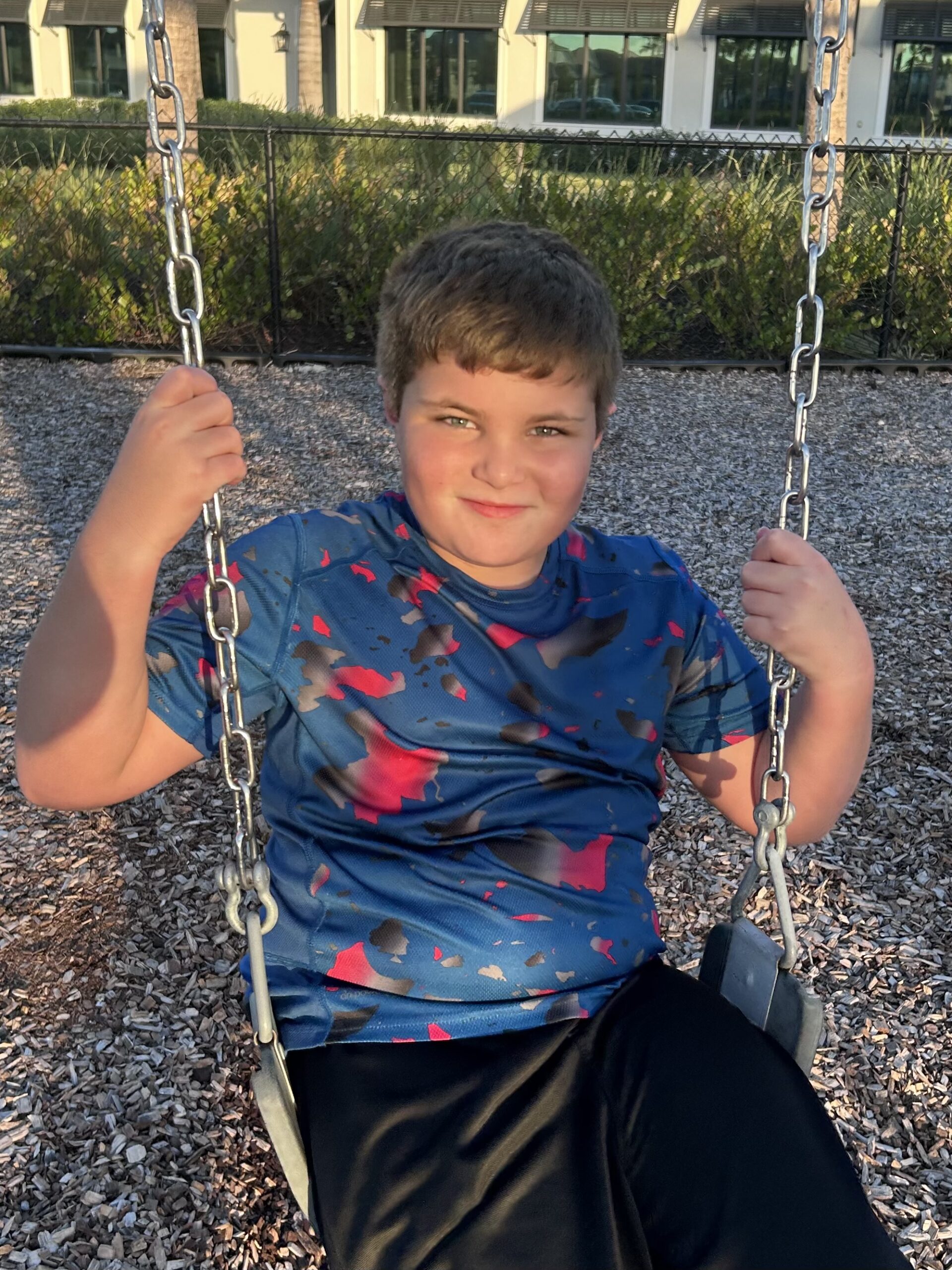
Navigating Hurricane Milton: Emotional and Mental Fatigue for Parents Is Real
When Hurricane Milton made landfall on the east coast of Florida last week as a Category 3 storm, it wasn’t just the winds and rain that hit hard—it was the emotional, financial and mental toll on families, especially those with non-verbal autistic children. For many of us, managing the sensory overload that a hurricane brings, alongside our own fears and exhaustion, is a storm itself.
As parents of neurodivergent children, we already walk a delicate line between managing their emotional world and keeping ours in check. But throw in a natural disaster, and the challenges escalate to a whole new level.
The Storm Within the Storm
Hurricanes are noisy, unpredictable, and chaotic—everything that can trigger anxiety and sensory overload for an autistic child. For my son, Robert, who is non-verbal, these triggers manifest as restlessness, repetitive behaviors, and meltdowns. With no ability to communicate his distress due to power outages his emotions become physically overwhelming for both of us.
In those moments, when the storm rages outside, I have to summon all my strength to remain calm for him, even when I feel the panic rising within me. His eyes search for reassurance, and I have to offer it, even when I’m not sure how.
Balancing Safety and Emotional Needs
Keeping children safe is every parent’s primary goal during a hurricane, but for families like ours, safety has an additional layer. It’s not just about boarding up windows or stocking up on supplies—it’s about finding a way to create a sense of security in an environment that feels anything but.
During the storm, the anxiety isn’t just his—it’s mine too. I worry not only about the physical dangers but also the emotional ones. How can I keep him feeling calm when I am filled with dread? How can I ensure he’s entertained when there’s no electricity and we’re stuck indoors for what feels like forever?
The Reality of Fatigue
One of the hardest parts of parenting a neurodivergent child during a natural disaster is the emotional and mental fatigue that follows. Sleep becomes scarce as you stay alert to every sound, every change in his mood, and every shift in the storm’s path. You’re constantly on edge, not just because of the weather but because of the unpredictable behavior of your child, who can’t tell you what he’s feeling.
The exhaustion doesn’t just come from the physical efforts of keeping everyone safe but from the emotional toll of managing meltdowns, all while keeping your own fears at bay. It’s a balancing act—being a strong parent, an effective caregiver, and a calming presence when you’re struggling internally yourself.
The Challenge of Entertainment Without Electricity
When the power goes out, so do many of the tools we rely on to keep our children calm and entertained. In the case of Robert, routines are vital, and so much of his comfort comes from the familiar rhythms of life—his AAC device, his favorite videos, lights, and the hum of white noise in the background. Without these, we had to get creative, but creativity is tough when you’re tired.
I downloaded an app on my phone that acted as a sound machine. We used my hybrid vehicle to charge our devices as well as provide some reprieve from the heat. We ventured out of the house to the park and to get gas-which was an adventure on its own. It was an endless loop of trying to fill the space that the power outage had created. The lack of power may have been inconvenient for most, but for families like ours, it disrupted the foundation of routine, making it one of the most challenging aspects of the hurricane.
Finding Strength in Community
During times like these, it’s easy to feel isolated, but I’ve learned that community is essential. Whether it’s connecting with other parents of autistic children, reaching out to friends and family, or simply sharing stories of survival, we lean on one another. While we’re all weathering different storms, we understand the unique challenges of raising neurodivergent children in a world that isn’t always built for them. We were fortunate to have family who had power and were able to spend some quality time with them.
Hurricane Milton reminded me of the strength we have as parents and caregivers. The physical storm may have passed, but the emotional storm—of balancing our children’s needs with our own mental health—continues. We take it one day at a time, knowing that even in the most trying circumstances, we’re resilient, and our children, though non-verbal, teach us about strength in ways words never could.
Moving Forward
As we recover from the aftermath of the storm, both physically and emotionally, I hold onto the reminder that we’ve faced challenges before, and we’ve come through. While there is no perfect way to manage the stress of a hurricane with a neurodivergent child, what matters most is that we are doing our best—each meltdown soothed, each worry managed, each day survived. The storm may come and go, but our dedication to our children never wavers.
To every parent or caregiver out there facing similar struggles, remember that you are not alone. Our strength comes not just from weathering the storms but from the love we have for our children, even when the wind howls and the world feels like it’s falling apart. Together, we will get through this.


No Comments